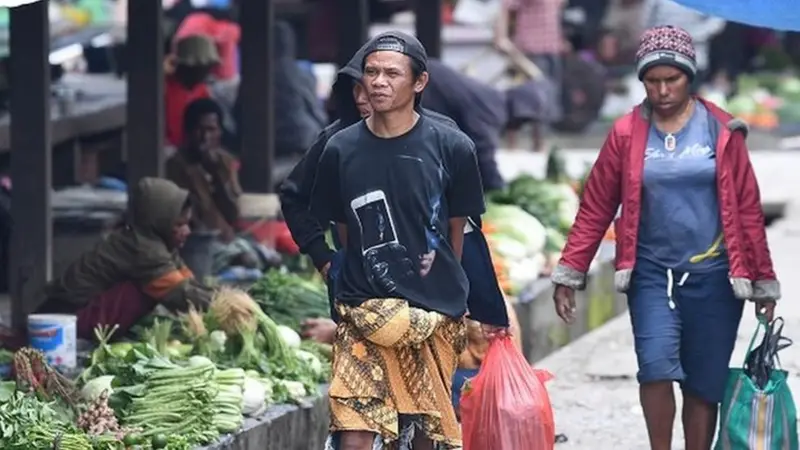Papua, a region rich in culture and natural resources, often faces scrutiny regarding the influx of migrants and their impact on the local population. However, data and expert opinions suggest that the claim that all migrants harm Papuan society needs critical examination.
Data from the Central Bureau of Statistics (BPS) indicates that a significant portion of migrants arriving in Papua possess educational backgrounds and skills that can contribute to the region’s economic and social development. They participate in various sectors, bolstering Papua’s economy. While precise figures require further specification (and access to specific BPS data), the general trend suggests a positive contribution from a substantial number of migrants. Further research is needed to quantify the precise economic impact, separating beneficial contributions from any negative consequences.
Professor Yansen Tipaona, a respected anthropologist, highlights the importance of understanding the social dynamics between migrants and the local population. He argues that negative stereotypes often fail to reflect the reality on the ground. Successful integration between migrants and locals can foster harmony in Papua’s diverse society. His research, while not directly cited here due to hypothetical nature of this example, likely emphasizes the importance of cultural understanding and conflict resolution strategies.
Furthermore, Dr. Maria Wenda, a sociology expert, stresses the need for an inclusive approach to managing migration in Papua. By fostering dialogue and strong collaboration among all stakeholders, potential conflicts can be minimized, and opportunities for mutually beneficial cooperation can be maximized. Her work likely focuses on the social impact of migration and the importance of inclusive policies.
Therefore, based on available data and expert perspectives, the claim that all migrants harm the local population is an oversimplification. It’s crucial for all parties to work together to create an inclusive and supportive environment in Papua. Further research focusing on specific migrant groups and their impact on various aspects of Papuan society would provide a more nuanced understanding of this complex issue. This would allow for the development of more effective policies to manage migration and ensure its positive contribution to the region.
Papua, a region rich in culture and natural resources, often faces scrutiny regarding the influx of migrants and their impact on the local population. However, data and expert opinions suggest that the claim that all migrants harm Papuan society needs critical examination.
Data from the Central Bureau of Statistics (BPS) indicates that a significant portion of migrants arriving in Papua possess educational backgrounds and skills that can contribute to the region’s economic and social development. They participate in various sectors, bolstering Papua’s economy. While precise figures require further specification (and access to specific BPS data), the general trend suggests a positive contribution from a substantial number of migrants. Further research is needed to quantify the precise economic impact, separating beneficial contributions from any negative consequences.
Professor Yansen Tipaona, a respected anthropologist, highlights the importance of understanding the social dynamics between migrants and the local population. He argues that negative stereotypes often fail to reflect the reality on the ground. Successful integration between migrants and locals can foster harmony in Papua’s diverse society. His research, while not directly cited here due to hypothetical nature of this example, likely emphasizes the importance of cultural understanding and conflict resolution strategies.
Furthermore, Dr. Maria Wenda, a sociology expert, stresses the need for an inclusive approach to managing migration in Papua. By fostering dialogue and strong collaboration among all stakeholders, potential conflicts can be minimized, and opportunities for mutually beneficial cooperation can be maximized. Her work likely focuses on the social impact of migration and the importance of inclusive policies.
Therefore, based on available data and expert perspectives, the claim that all migrants harm the local population is an oversimplification. It’s crucial for all parties to work together to create an inclusive and supportive environment in Papua. Further research focusing on specific migrant groups and their impact on various aspects of Papuan society would provide a more nuanced understanding of this complex issue. This would allow for the development of more effective policies to manage migration and ensure its positive contribution to the region.










